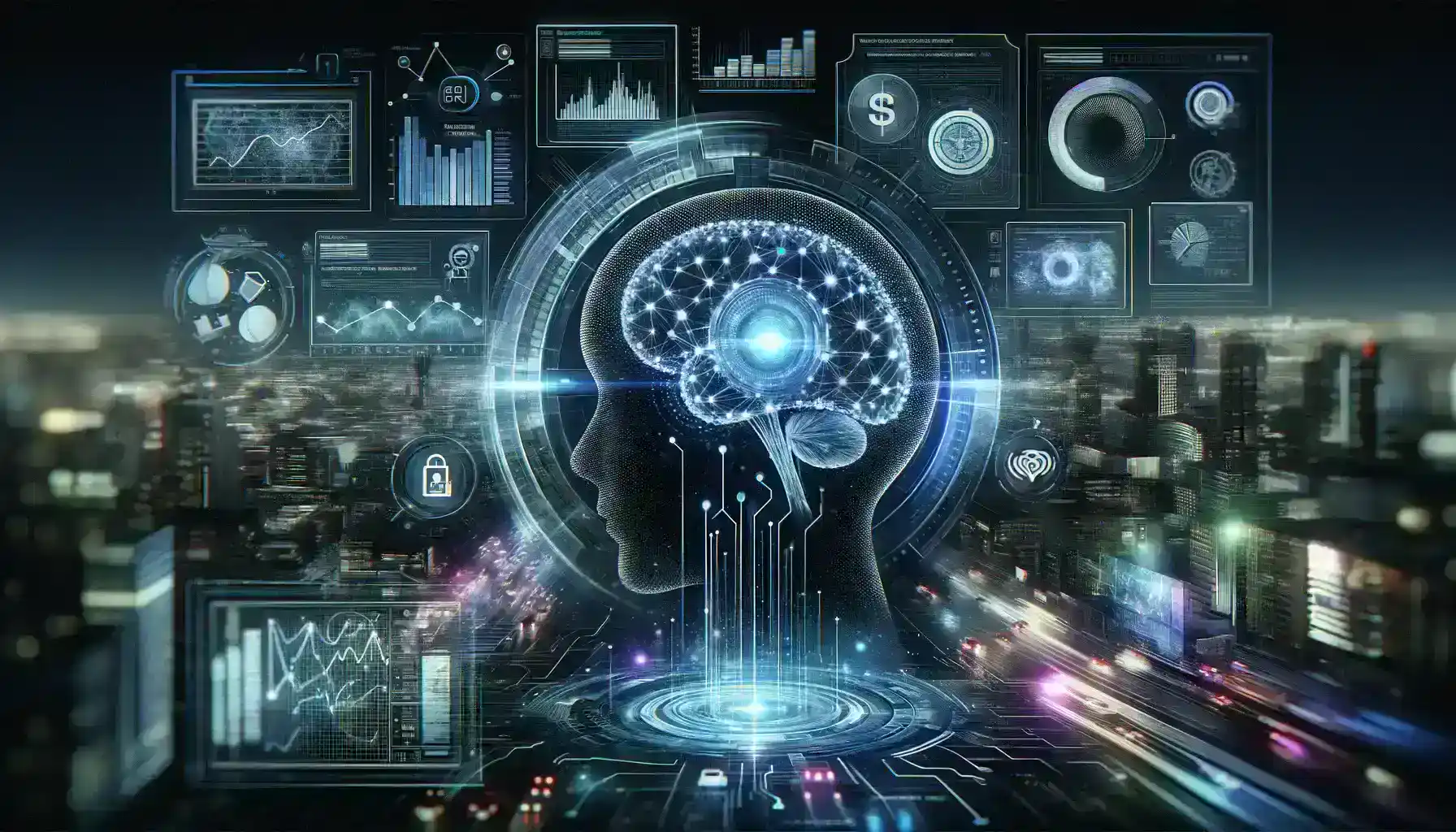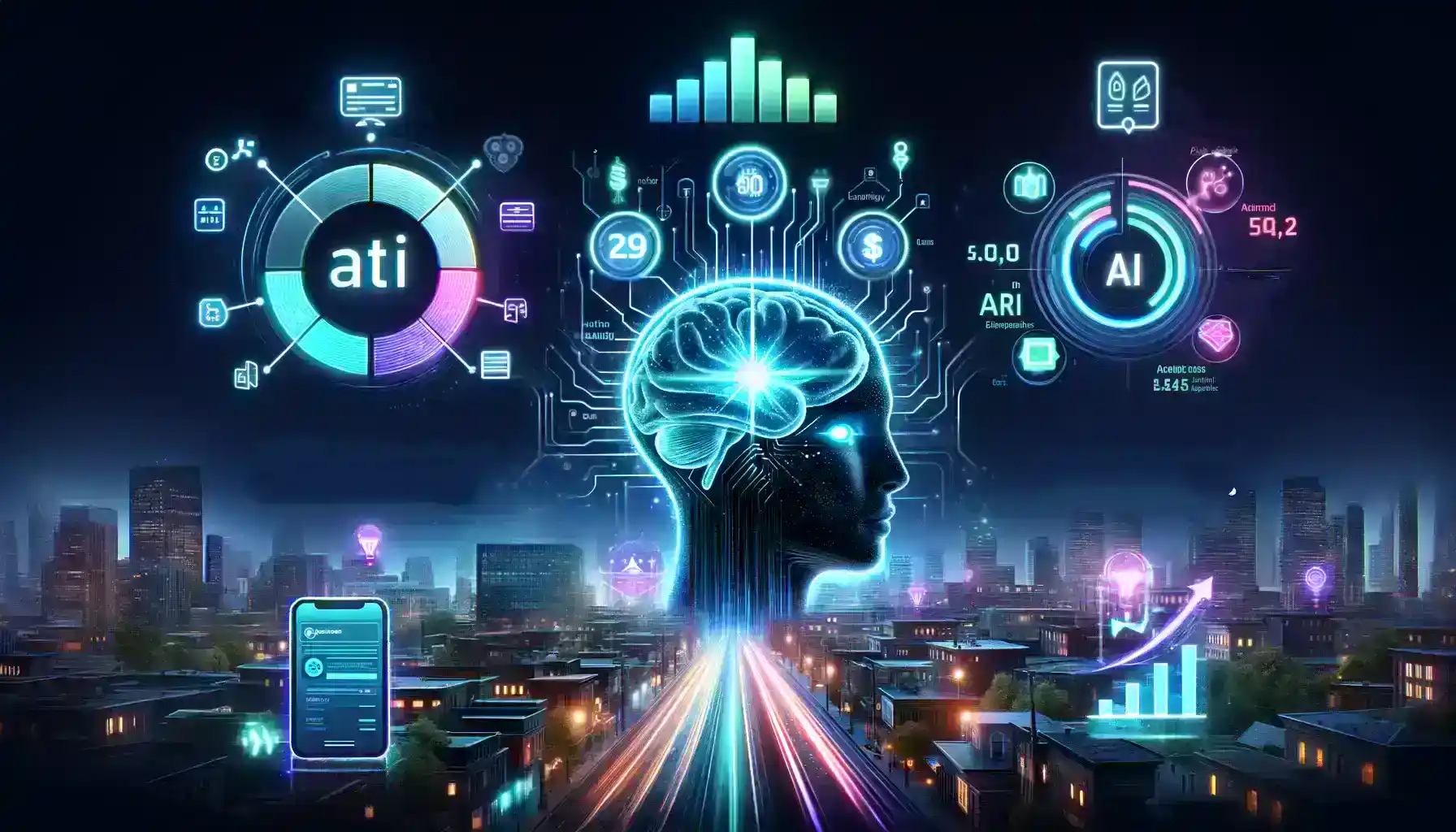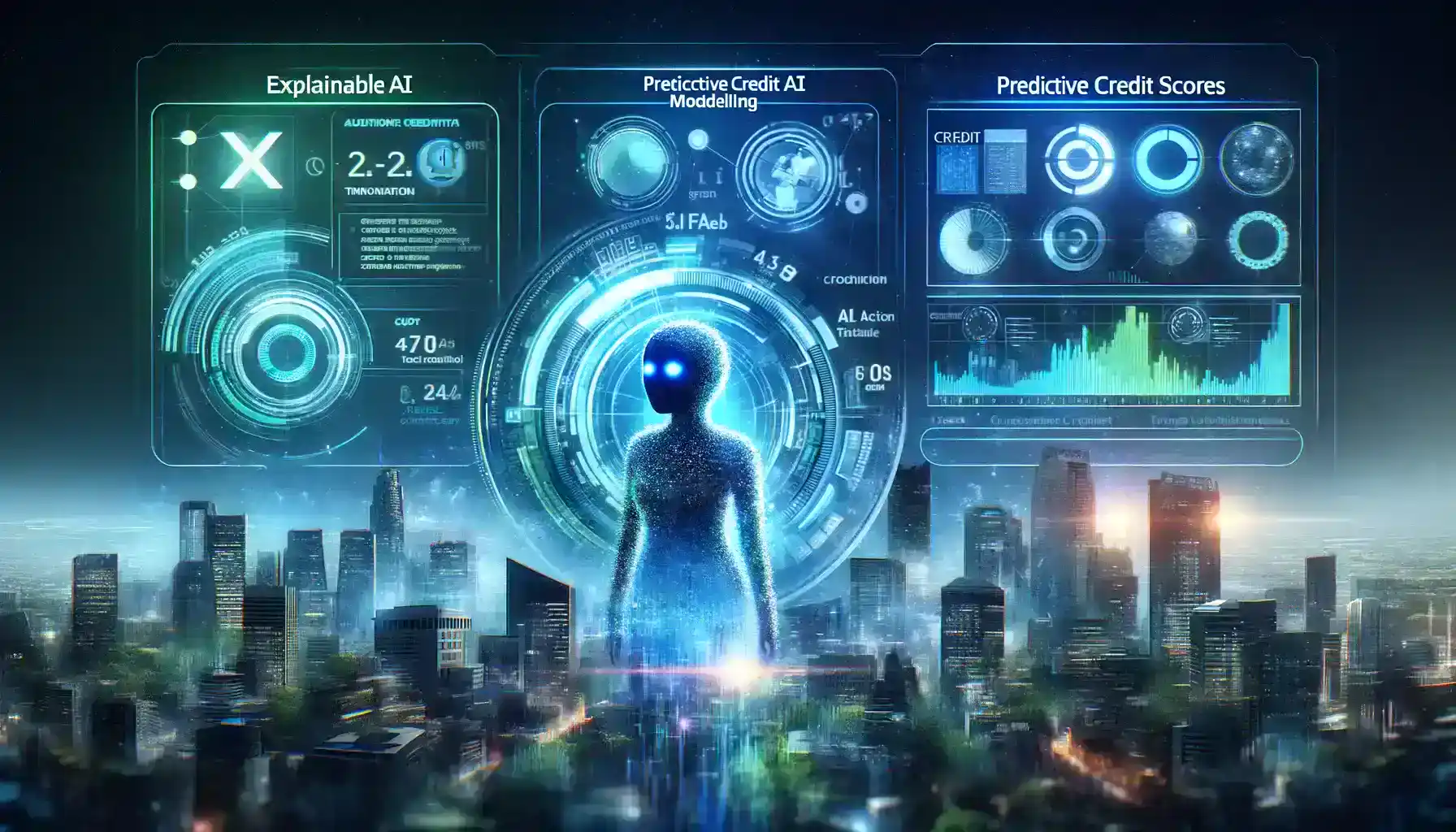Table of Contents
In the ever-evolving landscape of personal finance, a silent revolution is underway—one that’s changing the way we perceive creditworthiness and financial health. The focal point of this transformation? Credit Score AI Transformation.
Traditionally, credit scores have served as the gatekeepers of financial opportunities, determining our eligibility for loans, mortgages, credit cards, and more. However, the conventional credit scoring models, relying on limited data and predefined rules, have their limitations. That’s where Artificial Intelligence (AI) and Machine Learning (ML) step in, reshaping the way creditworthiness is assessed and, in turn, redefining our financial lives.
Imagine a world where your credit score isn’t just a number but a dynamic reflection of your financial journey, where it evolves as you do. Picture a system that considers not only your payment history but also your utility bills, rent payments, and even your online behavior.
This article explores the profound impact of Credit Score AI Transformation, unveiling how it’s already changing the game and what the future holds for a more inclusive and personalized financial world. Step into the future of financial health, where AI is the guiding force behind a brighter, more accessible financial landscape.

Understanding the Credit Score Landscape
Credit Score Landscape is the first step towards achieving financial success in today’s world. Credit scores, those three-digit numbers, hold incredible power in shaping our financial journeys. Ranging from 300 to 850 in the United States, these scores are more than just digits – they’re a reflection of our creditworthiness.
Think of credit scores as your financial report card. Lenders, landlords, insurers, and even potential employers refer to them to assess the risk of doing business with you. A high credit score AI Transformation opens doors to a world of financial opportunities. It means lower interest rates on loans, seamless apartment rentals, and more accessible insurance options. On the flip side, a lower score can close those doors, limiting your financial prospects and increasing the cost of borrowing.
The Role of AI and ML in Credit Scoring
Traditionally, Credit Score AI Transformation relied on a set of predefined rules and statistical models to assess an individual’s creditworthiness.
In the traditional realm of credit scoring, the evaluation of one’s creditworthiness was bound by rigid rules and statistical models. These models factored in elements like payment history, credit utilization, credit history length, types of accounts, and recent credit inquiries. While they served their purpose to a degree, they were not without their shortcomings, often leading to less-than-precise risk assessments.
Enter the transformative duo of Artificial Intelligence (AI) and Machine Learning (ML). These cutting-edge technologies are rewriting the script. AI algorithms can digest immense volumes of data, uncover intricate patterns, and generate predictions based on historical data and real-time information. When harnessed for credit scoring, AI and ML bring with them a wave of innovation and potential:
They enhance the precision of credit assessments, considering a broader range of data sources, enabling lenders to offer tailored solutions, and ultimately revolutionizing the financial landscape. It’s a leap forward into a world of more accurate and inclusive credit evaluations, opening doors to opportunities that were previously out of reach.
Enhance Accuracy
Traditional credit scoring models have their limitations, often missing a comprehensive view of an individual’s financial behavior. In contrast, AI algorithms excel in analyzing vast and diverse data sources. For example, they can consider rent payments, utility bills, and even social media activity, allowing for a more holistic evaluation of creditworthiness. This broader data scope translates into credit assessments that are notably more accurate.
For instance, consider an individual with a limited credit history but a commendable record of on-time rent payments. Conventional models might label them as high risk due to their limited credit history. However, AI algorithms can recognize the reliability of their rent payments and assign a more accurate credit score.
Speed Up Decision-Making
The application process for loans, credit cards, or other financial products can often be time-consuming. AI-driven credit scoring systems, on the other hand, can provide instantaneous credit decisions. This speed is particularly advantageous when applying for financial products online. For instance, John, a college student, applies for a credit card online.
Thanks to AI-powered credit scoring, he receives an instant approval decision based on his digital footprint and alternative data. This not only saves time but also empowers individuals like John to embark on their credit-building journey without wavering.
Detecting Fraud and Identity Theft with Credit Score AI Transformation
AI algorithms, driven by the power of Credit Score AI Transformation, exhibit a remarkable proficiency in identifying suspicious patterns and anomalies. This innate capability positions them as invaluable assets in the ongoing battle against potential cases of identity theft or fraudulent activities. Operating in real-time, these AI algorithms bolster security measures for both consumers and lenders.
Personalizing Financial Solutions through Credit Score AI Transformation
One of the most compelling aspects of the Credit Score AI Transformation is its unique ability to personalize financial solutions. Instead of employing a rigid, one-size-fits-all approach, these AI-driven systems can tailor financial products to match individual needs and risk profiles. This personalized approach can result in more suitable loan offers, competitive interest rates, and favorable credit terms.
Ultimately, consumers benefit from these tailored financial solutions, aligning their financial strategies with their specific circumstances and goals. This personalization marks a significant shift in the financial industry, driven by the integration of AI and ML into credit scoring processes.
Credit Score AI Transformation: Unveiling the Revolution

Experian Boost
Experian, one of the major credit bureaus, launched Experian Boost, a service that allows consumers to voluntarily add utility and telecom bill payments to their credit reports. The AI-powered platform analyzes this alternative data and instantly updates credit scores.
Outcome: Millions of consumers have seen their credit scores AI Transformation increase thanks to Experian Boost. Those with thin credit files or less-than-stellar credit histories have gained access to better financial opportunities.
LendingClub’s AI-Driven Approval Process
LendingClub, a prominent online lending platform, employs AI algorithms to assess loan applications in real-time. The platform considers a wide range of factors, including traditional credit data and alternative data sources, to make lending decisions.
Outcome: LendingClub’s AI-driven approach has resulted in faster loan approvals, competitive interest rates, and expanded access to credit for borrowers who might have been overlooked by traditional lenders.
Credit Karma’s AI-Powered Recommendations
Credit Karma utilizes AI to provide users with personalized financial product recommendations. By analyzing users’ credit profiles and financial goals, Credit Karma suggests credit cards, loans, and other financial products tailored to their individual needs.
Outcome: Credit Karma’s AI-powered recommendations have empowered users to make informed financial decisions, optimize their credit card choices, and improve their financial health.
The Future of Credit Score AI Transformation
The future of Credit Score AI Transformation promises to be a dynamic and groundbreaking journey, characterized by continuous innovation and refinement. As technology evolves at an unprecedented pace, the integration of artificial intelligence (AI) and machine learning (ML) into credit scoring systems is set to unleash limitless potential, with several exciting developments on the horizon.
Explainable AI (XAI): One of the most notable advancements in the future of credit scoring is the emergence of Explainable AI (XAI). XAI aims to make AI algorithms more transparent and understandable to individuals. In the context of credit scoring, this means that borrowers will have the opportunity to gain insights into the reasons behind their Credit Score AI Transformation assigned to an individual. Unlike traditional black-box models, XAI will provide clear explanations regarding which factors influenced the specific credit score. This level of transparency empowers borrowers with a deeper understanding of their financial standing and encourages responsible financial behavior.
Predictive Credit Modeling: AI and ML have the potential to revolutionize credit scoring by enhancing predictive capabilities. These advanced technologies can predict future credit behavior with unprecedented accuracy. Predictive credit models can proactively identify potential financial challenges that borrowers may face in the future. For instance, they can forecast if an individual is likely to struggle with debt repayment or encounter financial difficulties. Armed with these insights, lenders can offer tailored financial solutions and guidance to help borrowers avoid financial pitfalls. This proactive approach not only benefits borrowers by reducing the risk of financial distress but also ensures responsible lending practices.
Financial Inclusion: One of the most profound impacts of Credit Score AI Transformation is its potential to bridge the financial inclusion gap. Traditional credit scoring models often rely heavily on an individual’s credit history, which can be a barrier for populations with limited or no traditional credit records. AI-powered credit scoring systems can assess creditworthiness by considering a broader range of data sources, including alternative data. This means that individuals with thin or non-existent credit histories, such as young adults, immigrants, or those from underserved communities, can gain access to financial services.

Embracing the AI Revolution in Credit Scoring
Credit Score AI Transformation signifies a transformative leap in the way we assess creditworthiness. The integration of AI and ML has empowered the financial industry to provide more precise evaluations, expedite approval processes, and deliver tailored financial solutions to individuals. The real-world examples we’ve explored serve as tangible proof of the substantial advantages that AI is already bringing to people’s financial lives.
Looking ahead, the future holds even more promising advancements in credit scoring technology. As AI continues to evolve, we can anticipate improved accuracy, increased efficiency, and a higher degree of personalization in credit assessments. This ongoing AI revolution is poised to democratize access to financial opportunities, bridging gaps in financial inclusion and opening doors for individuals with limited credit histories.
In light of these developments, consumers must stay informed about the evolving landscape of credit scoring. Being aware of how AI is reshaping credit evaluation allows individuals to make informed financial decisions, capitalize on favorable terms, and ultimately enhance their financial well-being. Embracing the AI revolution in credit scoring presents a pathway to a more equitable and financially secure future for everyone.